If Dawn hasn’t declared as such already, I’ll repeat the message here, which is that this coming week will be our brief “winter vacation”. I’ll most likely have a blog up, but the comic will resume on January 12th. Hope everyone had/has Happy Holidays!
I had mentioned this pair of books a couple blogs ago, and I’ll say this much for being sick: I definitely had time to catch up on my reading.
Day By Day Armageddon
Day By Day Armageddon: Beyond Exile
This series started, according to the introduction in the first book, as a free publication on the web, which again shows the potential of an emerging 21st century business model: make a good product, gather an audience, and if it works out well enough the publishers may come calling. Perhaps one day that will happen for Zombie Ranch, but in the meantime it’s great to see the success stories of others in action, particularly when they result in something fantastic like
Day By Day Armageddon.
The books are written by
J.L. Bourne, drawing on his real-life experiences in the U.S. Military to present a tale of an American soldier who decides to keep a journal of his life shortly before a zombie apocalypse turns the world into a living hell. Appropriately enough for the time of this blog, the journal is his New Year’s Resolution, but only a few days after January 1st, the first vague reports are coming through of a nasty new strain of flu hitting China. And we all know where that’s going to lead…
On a side note, it’s interesting that both World War Z and this series decided to center ground zero of their zombie apocalypse in China. Sure, it’s the most populous nation on Earth, coupled with a government that’s not keen on sharing information with either its populace or the world at large, but if I were an analytical man (and I am) I’d say the idea runs deeper than just that and touches on the sort of zeitgeist that was responsible for turning Invasion of the Body Snatchers into a Communist allegory. China these days is the new Russia, an emerging bogeyman threatening America’s “We’re the only Superpower” status, and it’s even more complicated than that because as far as I know we didn’t owe billions of dollars of trade debt to Russia during the Cold War. China doesn’t even need to be a military superpower considering how much money the U.S. has tied up there. China is that Communist state that just won’t have the good grace to collapse in on itself or stay in the economic minor leagues, and it could be easily argued that the U.S. had a big hand in “creating the monster”.
That’s all an admittedly oversimplified take on the situation, but as an American myself, I think deep down on some level, China makes us uneasy these days, and we know that what affects China affects us. There’s also, perhaps, a distrust of government policies that led us to this point… and so on at least two occasions now, I’ve read zombie apocalypse scenarios that have their flashpoint in China, quickly spread to the globe, and in the U.S. at least there’s a combination of press blackouts and overconfidence that lead to disastrous consequences. Does the 21st century zombie apocalypse on some level reflect on a global society where all nations are tied together and a stock market crash on one side of the world causes hunger and homelessness on the other side? If so, then that could be one big reason the genre got so popular recently.
I should be getting back to Mr. Bourne’s book, though, and trust me, he isn’t wasting time with all this philosophy. The entries in his soldier’s journal are a dry sort of prose, often loaded down with minute details of his preparations for survival, and yet are compelling in spite of that. His matter-of-fact descriptions of the first weeks of January, where things are starting to fall apart, convey a tactile, grass roots appreciation of the situation that trumps any amount of poetry or scientific exposition, and develop a picture of the frightened but determined human being behind the terse words.
Having read both books so far, I cannot recommend them enough if you hunger for a dose of serious, well considered zombie survival fiction. Bourne is not big on flowery description or dialogue, but the descriptions he does give will stick with you. For a chosen format that represents a journal being written in entries after the action being described has taken place, Bourne still manages terse, visceral moments of tension and horror, moments that can make you forget that the protagonist must have survived them or you wouldn’t be reading his words. And though I say there’s a distinct lack of “flora” in the writing, there are times where it can be downright artful in its rhythms or observations.
You grow to care for this man and his struggle to survive, and the struggles of those he comes in contact with. You want to keep turning the pages. This is the first (and perhaps most important) accomplishment Bourne achieves. The second is one I talked about before when I reviewed the first episode of The Walking Dead, the ability to craft a deadly serious, compelling vision of the zombie apocalypse without straying into camp. The third is that, at least in my opinion, none of the events that occur feel forced for dramatic effect. There are many times where supply runs and the like are accomplished routinely or careful plans work out okay, and sometimes the SNAFUs come from very unexpected angles. Everything is presented with a high dose of realism: the protagonist may be a trained military officer, but he’s not Superman. He misses shots. He confesses terrors. When he’s hurt, he needs time to recover. When he’s too close to an explosion, he has to write later on that he doesn’t even remember the immediate aftermath and had to be filled in on it by the friends who dragged him to safety.
He also keeps his weapons oiled, his survival gear inventoried, and is always trying to think ahead to the next options should the current safe haven be compromised. It’s a nice, balanced picture of a man in the situation who’s not Hollywood competent, but also isn’t Hollywood stupid. The same goes for the other survivors around him. When they come upon a young lady trapped in a car, she’s so dehydrated they think at first she’s dead, and the back seat is full of containers filled with… well, exactly what you’d figure they’d be filled with if any human being were trapped in a confined space with no facilities. She wasn’t going to last much longer, but holding out for days under those conditions while the living dead pounded and moaned on the windows day and night shows immediately that she’s not just the usual screaming fluff. If it’s ever made into a movie they’ll probably delete the details here, since everyone knows girls don’t poop. But those little details, fair or foul, are what really keep the narrative in focus.
You do have to accept a central conceit of most zombie apocalypsii, which is that things go straight to hell hard, fast, and in such a thorough way that within a month the small bit of the U.S. Government left is authorizing nuclear strikes on its own cities. But if that works for you, the rest proceeds in a logical enough fashion, even once we get to book two and the scope of the man’s experience starts going from a local to a national and even global concern. Perhaps you might even consider matters at this point to devolve into some shark jumping, but I feel like it was all handled gradually and skillfully enough not to stray too far from where things started. The second book in particular has a little appendix that all but spells out how the foetid zombie ball got rolling, but at its core Day By Day Armageddon remains a tale told by one man, doing the best he can to keep himself and those he cares about alive in the face of disaster, clinging to a thin shred of hope in the darkest of days… day by day.








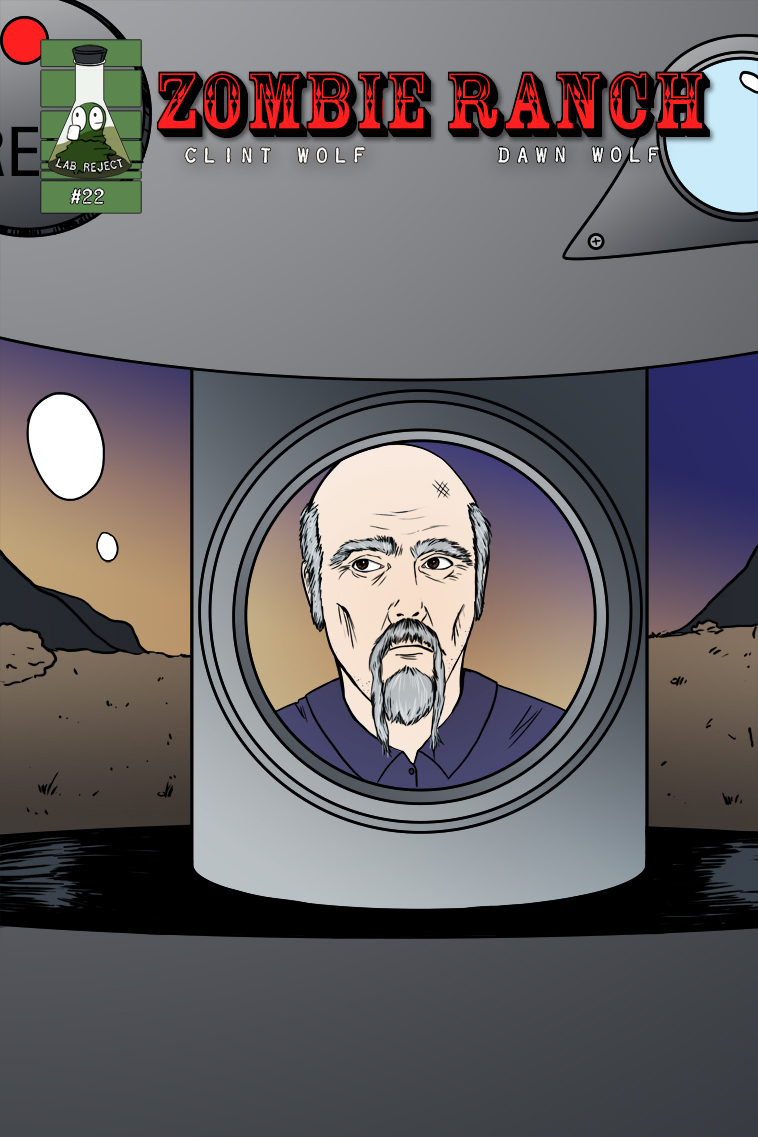

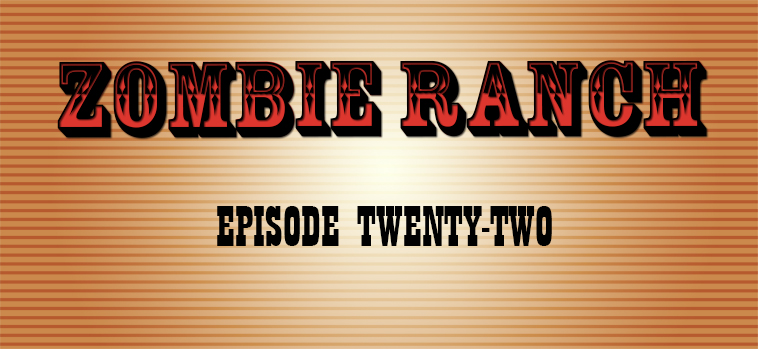
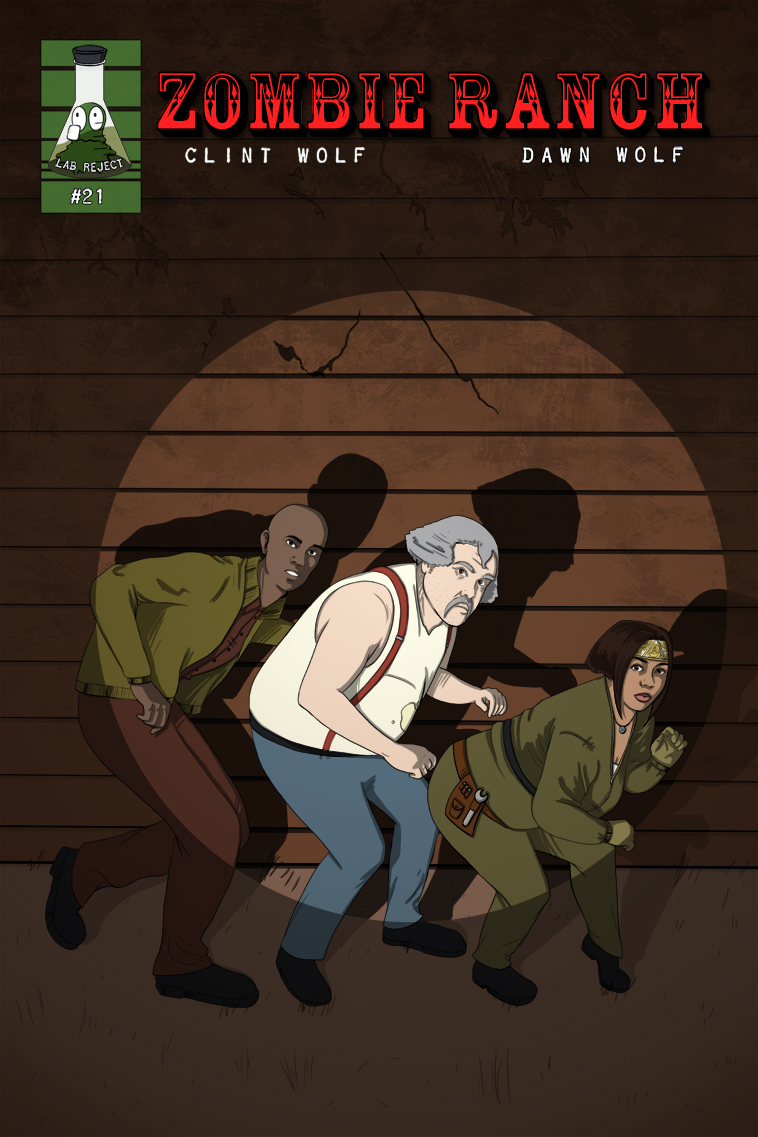
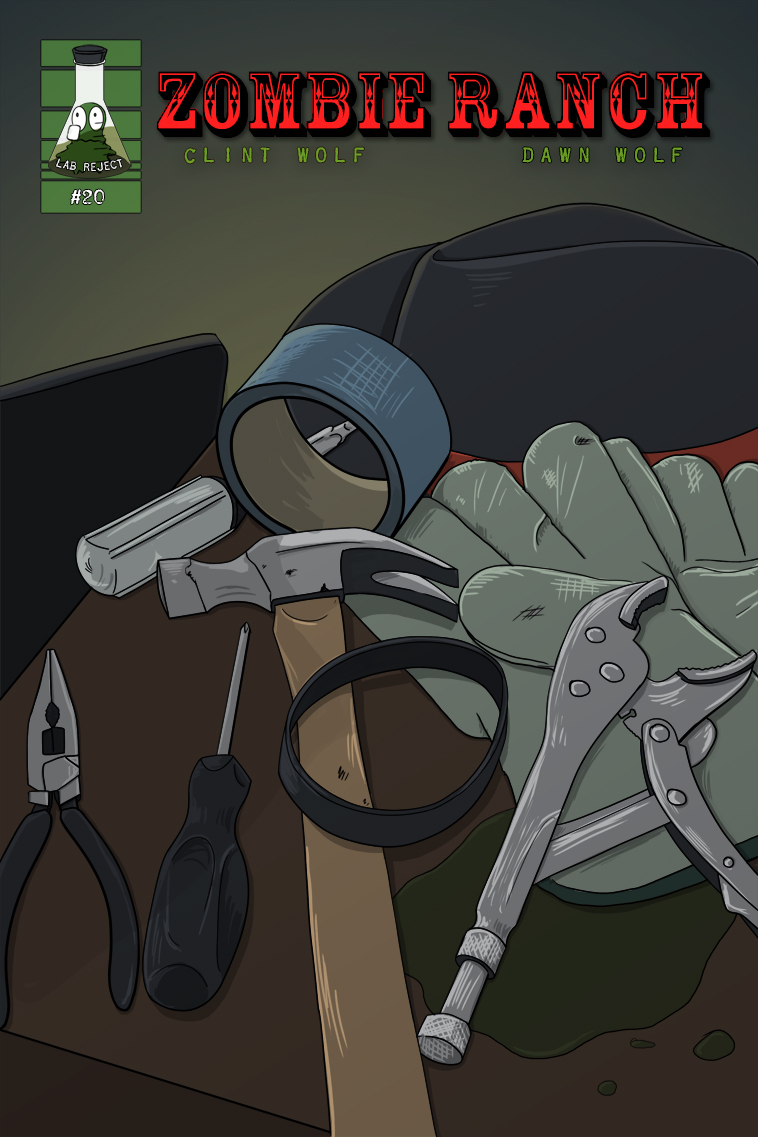
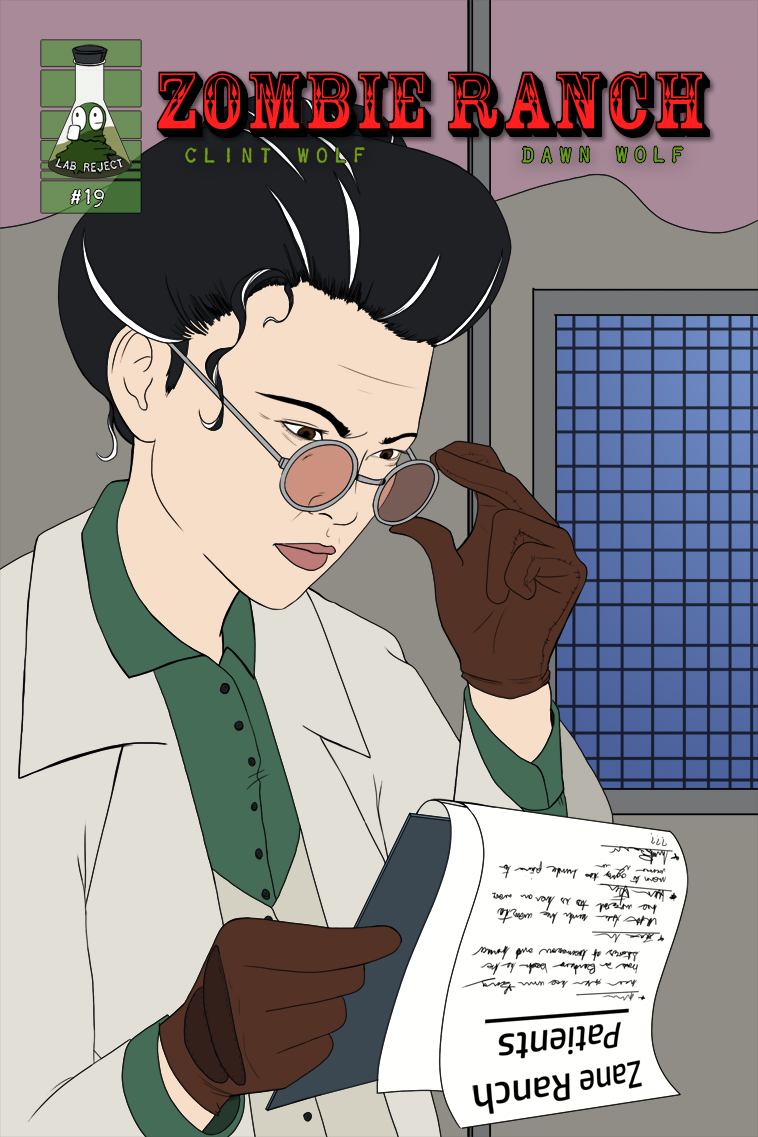
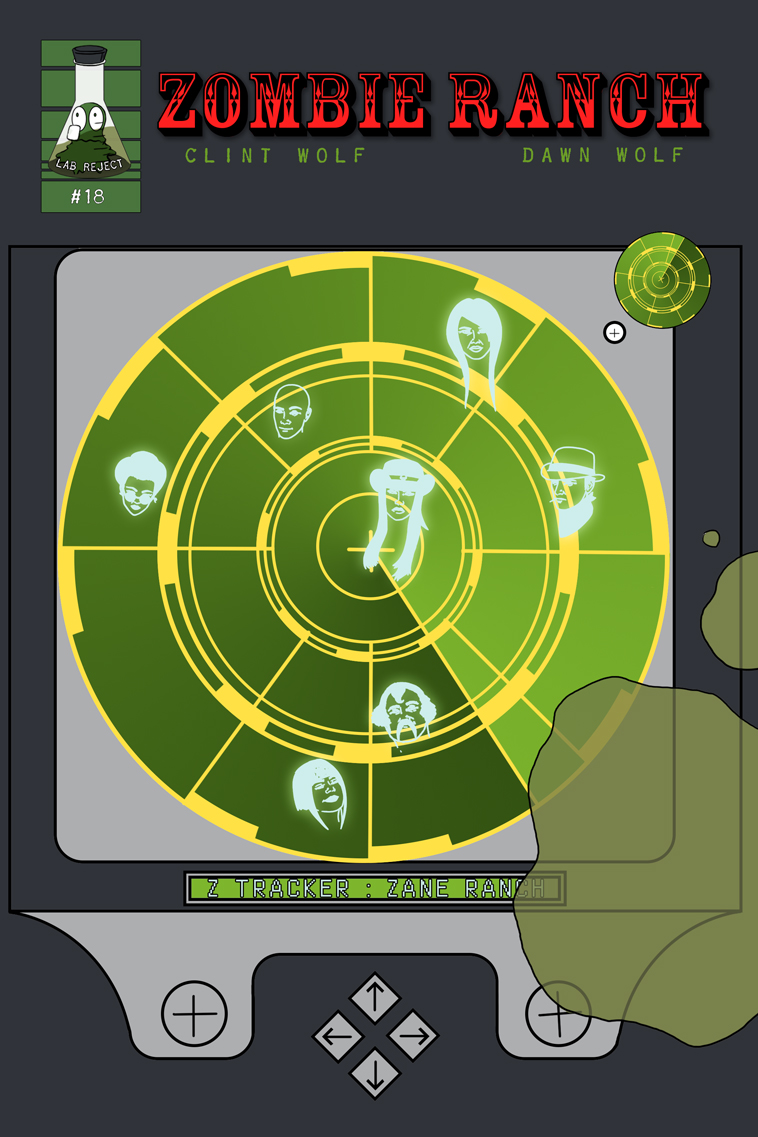
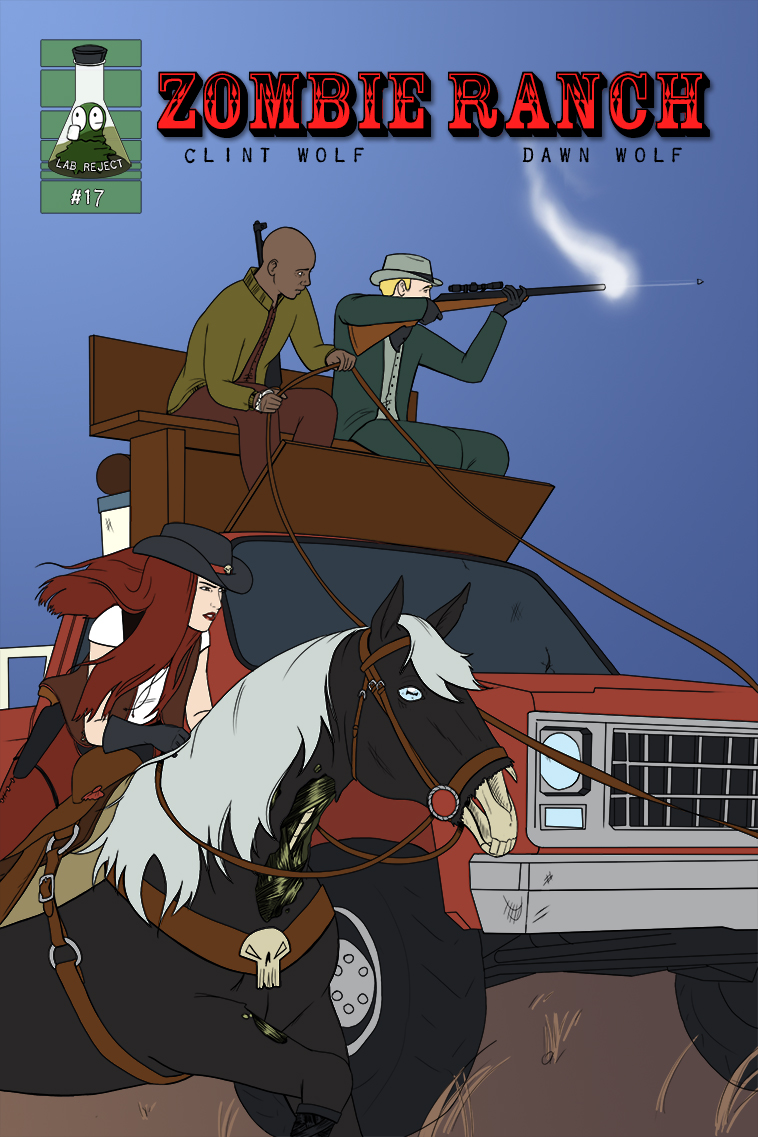
2 thoughts on “Issue 22 Cover”
Dr. Norman (not a real doctor)
Ooohhh … He looks – desperate.
Zombatar
No hat. He lost his hat. Which had a lot of his personality. Alert! Alert! We have a Lost Hat emergency! This is Not a Drill! Alert! Alert!